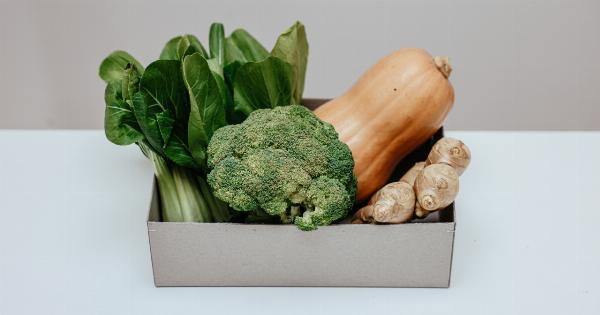Broccoli and cabbage are some of the healthiest vegetables available. They are rich in vitamins and minerals that are essential to maintain a healthy body. However, many people find the taste of these vegetables to be bitter and unpleasant.
This can prevent them from getting the health benefits they need. In this article, we will explore why broccoli and cabbage taste bitter to certain people.
Bitter Taste Receptors
Bitterness is one of the five fundamental tastes that our tongue can detect. The other four are sweet, salty, sour, and umami.
Bitter taste receptors are present on our taste buds, which are tiny structures found on the tongue, roof of the mouth, and throat. These receptors are responsible for detecting bitter compounds present in foods and drinks.
Genetic Predisposition
Research suggests that genetics may play a role in how we perceive bitterness. Some people may carry a gene that makes them more sensitive to bitter tastes. This means that even small amounts of bitter compounds can taste overwhelming to them.
In contrast, others may have a gene that makes them less sensitive to bitterness. This means that they may not perceive the same level of bitterness that others do.
Chemical Compounds
Broccoli and cabbage contain several chemical compounds that contribute to their bitter taste. One of the most well-known compounds is glucosinolate. This compound is responsible for the distinctive taste and smell of cruciferous vegetables.
When these vegetables are cooked, the glucosinolate compounds are broken down into smaller molecules called isothiocyanates. These molecules are highly volatile and can cause a pungent odor and bitter taste.
Cooking Methods
The cooking method can also affect the taste of broccoli and cabbage. Boiling or overcooking these vegetables can release more of the bitter-tasting compounds. This can make them taste more bitter and unappealing.
On the other hand, lightly steaming or roasting these vegetables can help to retain their natural sweetness and reduce bitterness.
Conditioned Taste Aversion
Conditioned taste aversion can also be a reason why some people find broccoli and cabbage bitter. This occurs when a person associates a particular taste with an unpleasant experience.
For example, if a person gets sick after eating cabbage or broccoli, they may develop a negative association with the taste of these vegetables. As a result, even if they try these vegetables again, they may perceive them to be unpleasantly bitter.
Age and Experience
Finally, how we perceive the taste of broccoli and cabbage can also be influenced by our age and experience. Research suggests that children are more sensitive to bitter tastes than adults and may find these vegetables more unappealing.
Over time, as we are exposed to an increasing variety of tastes, our taste buds can adapt and become more accepting of bitter flavors. As a result, what we once found bitter and unpleasant may become more palatable with repeated exposure.































